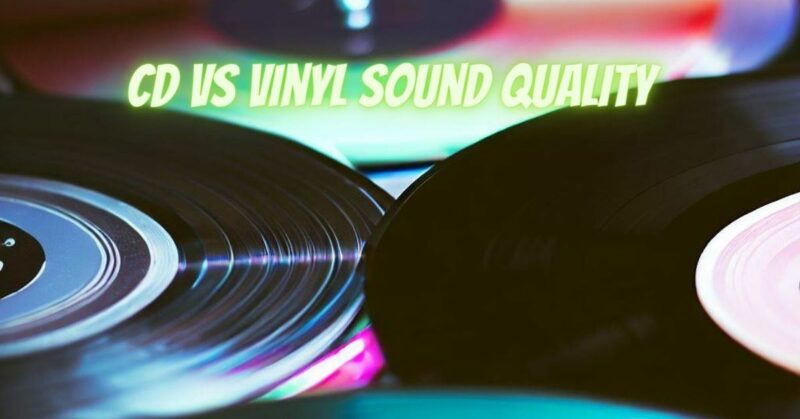In the realm of music formats, two contenders stand out with passionate followings: the CD (Compact Disc) and vinyl records. These formats not only differ in their physical characteristics but also in the way they capture and reproduce sound. The ongoing debate over CD vs. vinyl sound quality revolves around the trade-offs between digital precision and analog warmth. In this article, we delve into the nuances of each format’s sound quality to help you navigate the sonic landscape.
CD Sound Quality: The Digital Standard
CDs revolutionized the music industry with their digital audio technology. Sound is encoded as a series of numerical values, offering precise and consistent audio reproduction.
Pros of CD Sound Quality:
- Clarity and Accuracy: CDs deliver audio with high precision, faithfully reproducing the original recording without distortion or degradation.
- Dynamic Range: CDs can capture a wide dynamic range, preserving both soft and loud passages with fidelity.
- Consistency: CD playback remains consistent across multiple plays and doesn’t degrade over time.
- High-Frequency Detail: CDs can reproduce high-frequency details with accuracy.
Cons of CD Sound Quality:
- Digital Sound: Some listeners perceive CD sound as clinical or lacking in character compared to analog formats.
- Loss of Warmth: Analog warmth and imperfections, often present in vinyl, can be absent in CD sound.
Vinyl Sound Quality: Analog Warmth and Character
Vinyl records offer an analog listening experience that is celebrated for its warmth and character. The analog nature of vinyl captures nuances that digital formats might miss.
Pros of Vinyl Sound Quality:
- Analog Warmth: Vinyl records are praised for their warmth and the natural character they bring to sound.
- Dynamic Range and Intimacy: Vinyl records can offer a wider dynamic range, creating an intimate and organic listening experience.
- Imperfections and Ambiance: Soft crackling and surface noise contribute to a unique ambiance that evokes nostalgia and authenticity.
Cons of Vinyl Sound Quality:
- Noise and Distortion: Vinyl playback introduces noise and distortion that might affect audio quality.
- Playback Challenges: Vinyl records are susceptible to wear and damage, and proper playback equipment is essential for optimal sound quality.
- Inconsistent Sound: Variations in vinyl manufacturing and playback conditions can lead to inconsistencies in sound quality.
Personal Preference and Context
The choice between CD and vinyl sound quality is deeply personal and influenced by various factors:
- Aesthetic Appeal: Vinyl’s tactile nature and larger album artwork contribute to the overall sensory experience.
- Nostalgia: Vinyl often evokes a sense of nostalgia and connection to music history.
- Equipment: The quality of your playback equipment significantly impacts how you perceive sound quality.
- Listening Environment: Acoustic conditions in your listening space can influence how you experience both formats.
The CD vs. vinyl sound quality debate is more than a matter of technical specifications; it’s about the emotions and connections that music fosters. While CDs offer precision and accuracy, vinyl brings analog warmth and character. Ultimately, the choice depends on your appreciation for sonic nuances, your attachment to physical formats, and the kind of listening experience you seek. Whether you opt for the digital precision of CDs or the analog charm of vinyl, both formats offer unique ways to connect with music and engage with its artistry.


